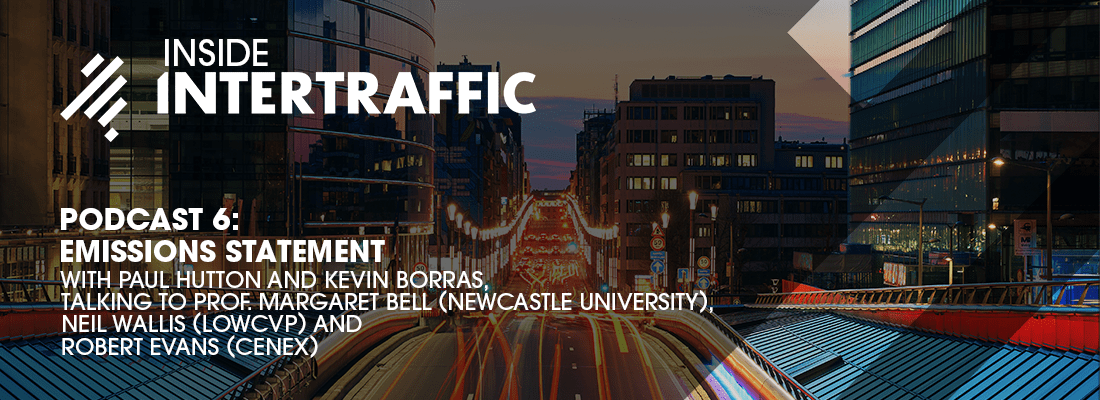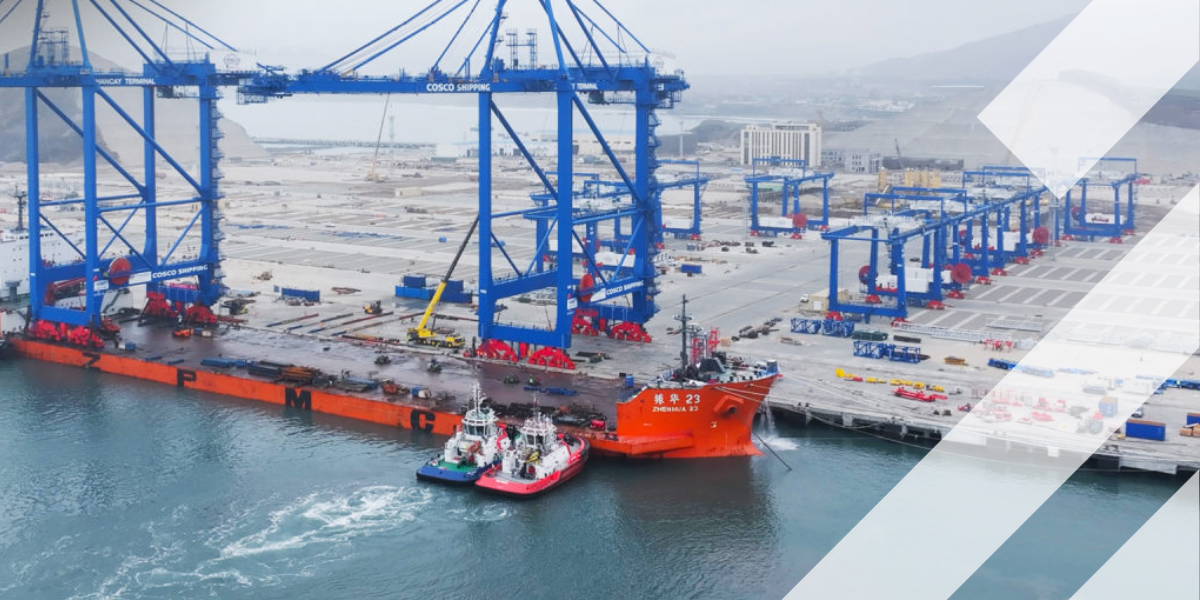Inside Intertraffic Podcast 6: Emissions statement

It’s time for another episode of the Inside Intertraffic podcast and in this show Paul Hutton and Kevin Borras’s focus is on sustainable transport.
Text
Prof Margaret Bell of Newcastle University in the UK gets things underway with a somewhat radical idea of rationing our ability to travel. As Margaret points out, the success of sustainability in the transport sector comes down to finding feasible, collaborative and co-operative solutions. Covid-19 restrictions have seen the majority of people working from home where possible, under instruction from government, but the pay off is that emissions increase exponentially as energy usage (including heating as we edge towards the autumn) increases.
'Research we did five or six years ago clearly showed an absolute need to reduce the number of vehicle kilometers travelled,' she says, 'so, if we're going to get anywhere near reducing emissions by 67% of carbon dioxide by 2050 it does need a radical change in travel behaviour.'
Kevin spoke with two protagonists in the electric vehicle sector to see how the coronavirus pandemic has affected the upward curve in market penetration. Neil Wallis, head of communications of London-based membership organisation Low Carbon Vehicle Partnership (LowCVP), explains how the virus has adversely affected EV sales (cars, trucks and buses) but on the positive side, he says that the lower traffic levels of the early part of the lockdown has led to an increased interest in low carbon vehicles.
'Communities liked the quieter mornings and the cleaner air so the current situation has given policymakers the opportunity to respond positively.' With plug-in hybrid sales accounting for around 10% of all new vehicle sales in a couple of the lockdown months in the UK, could it be that the low carbon vehicle sector could be one of the very few to come out of Covid-19 in better shape than when it went into it?
Robert Evans, CEO of electric and battery powered research centre of excellence CENEX, focuses on some of tenets of the Net Zero decarbonisation agenda and how Covid-19 has, if anything, 'highlighted the importance of electric vehicles.'
Robert explains that CENEX work with smaller, entrepreneurial companies that are trying to introduce new tech into the EV market but the current situation has meant that they have to make better use of the research space to keep resources on the payroll as commercial work hasn't been as forthcoming. The pandemic has hit at what was promising to be an exciting time for battery-powered vehicles so the next few months is going to be crucial in terms of long-term market recovery.


